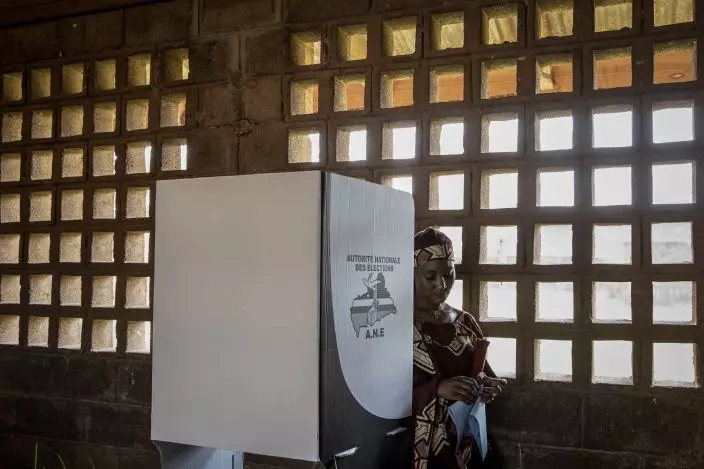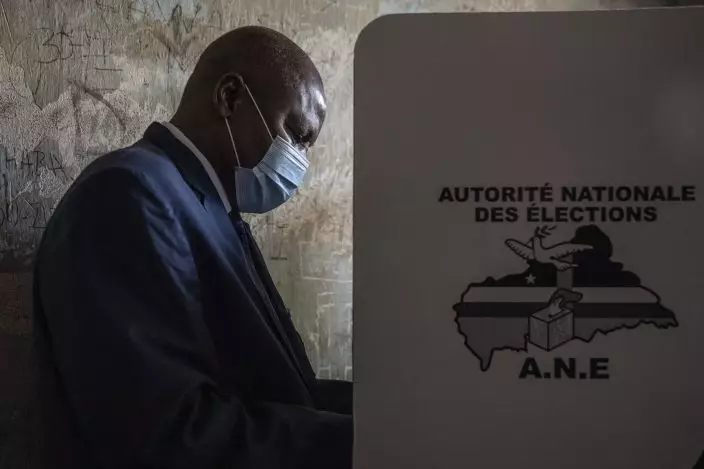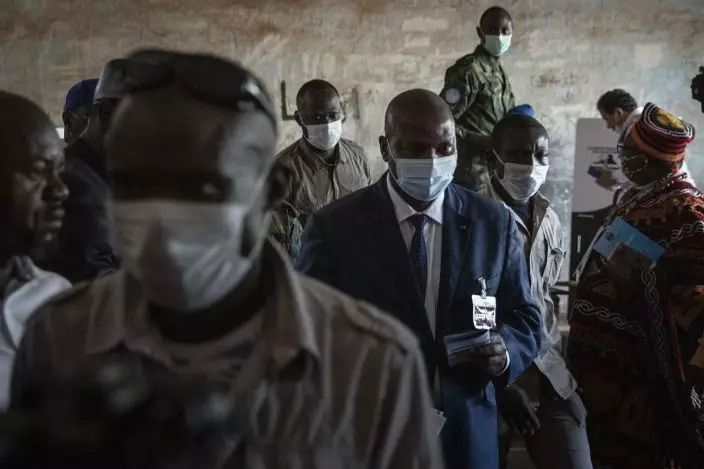Central African Republic's constitutional court on Monday upheld President Faustin Archange Touadera’s re-election, raising the specter of more violence days after rebels attempted to overtake the capital.
The opposition had urged the court to order a re-run of the Dec. 27 voting, saying insecurity and alleged irregularities had marred the election. However, the court announced Monday that Touadera had won with 35% of ballots cast.
Tensions have escalated dramatically since the presidential polls, with rebels opposed to Touadera's re-election trying to invade the capital last week. Security forces backed by U.N. peacekeepers ultimately repelled the attack.

A woman casts her vote at the Koudougou school polling station in the capital Bangui, Central African Republic Sunday, Dec. 27, 2020. Voting has begun in Central African Republic's presidential and legislative elections after a campaign period marked by violence between rebels and government forces. (AP Photo)
Former president Francois Bozize and his allies have been blamed for inciting the violence, which erupted after the constitutional court rejected his candidacy in December.
A judicial investigation has been opened into the role of Bozize, who was in exile until returning to the nation in December 2019, according to the Attorney General at the Bangui Court of Appeal.
Bozize, who took power in a coup in 2003 and ruled until 2013, faces an international arrest warrant for “crimes against humanity and incitement of genocide.” He also faces U.N. sanctions for his alleged role in supporting the militia groups that resisted Seleka rebels in 2013.

President Faustin-Archange Touadera casts his vote at the Lycee Boganda polling station in the capital Bangui, Central African Republic, Sunday, Dec. 27, 2020. Touadera and his party said the vote will go ahead after government forces clashed with rebels in recent days and some opposition candidates pulled out of the race amid growing insecurity. (AP Photo)
The mineral-rich Central African Republic has faced deadly inter-religious and inter-communal fighting since 2013, when predominantly Muslim Seleka rebels seized power from Bozize after long claiming marginalization. Resistance to Seleka rule eventually led to Muslims being targeted en masse, with some beaten to death, mosques destroyed and tens of thousands forced from the capital in 2014.

President Faustin-Archange Touadera, center, arrives to cast his vote at the Lycee Boganda polling station in the capital Bangui, Central African Republic, Sunday, Dec. 27, 2020. Touadera and his party said the vote will go ahead after government forces clashed with rebels in recent days and some opposition candidates pulled out of the race amid growing insecurity. (AP Photo)


